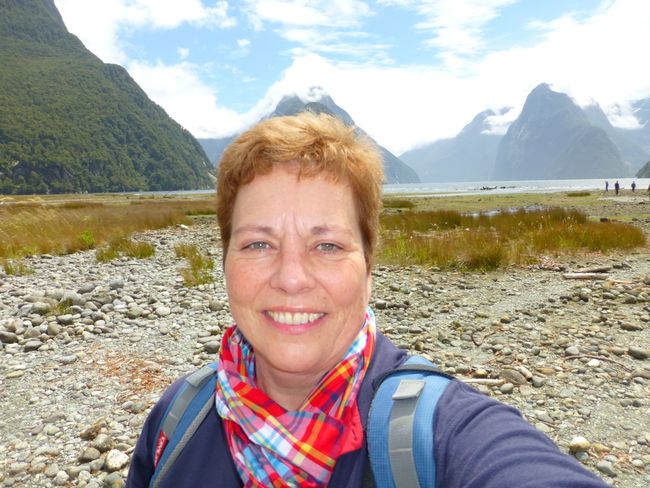Rotorua - Matamata - Hahei (Coromandel) - Day 9 in New Zealand
Published: 20.08.2019
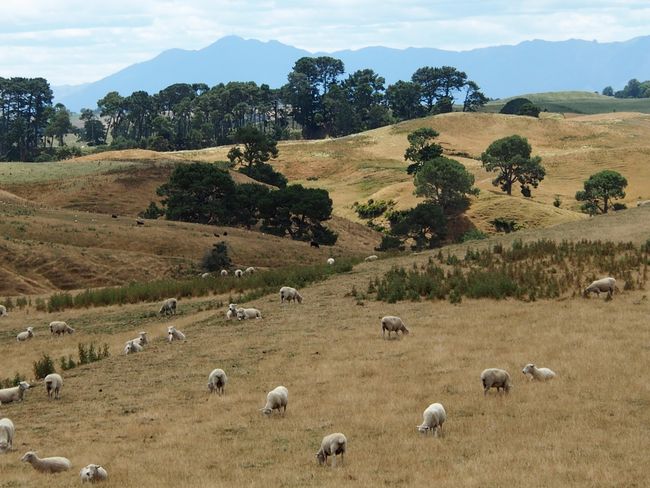
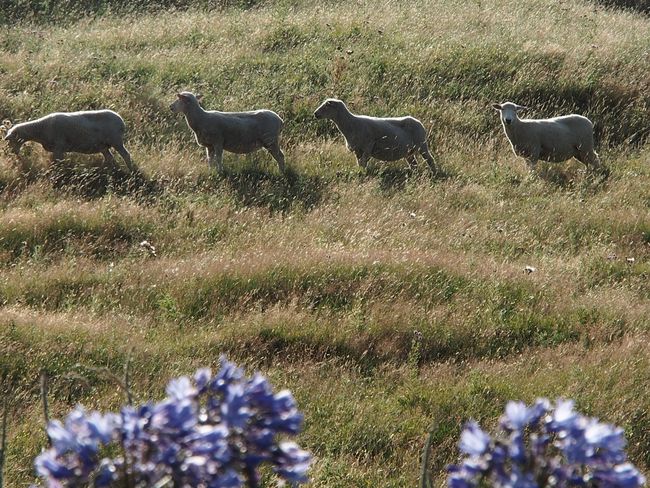
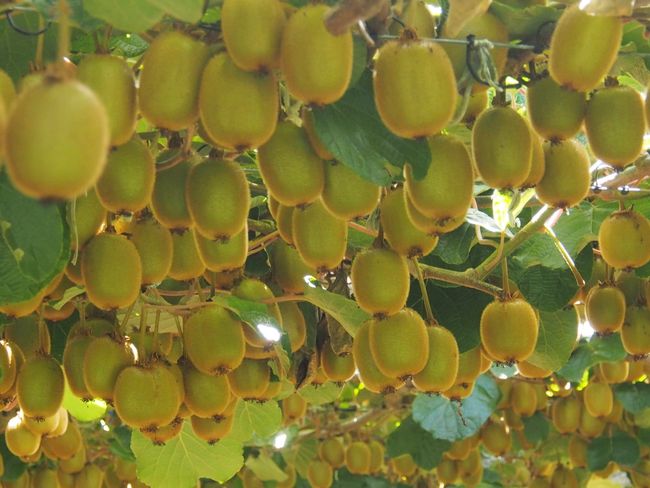
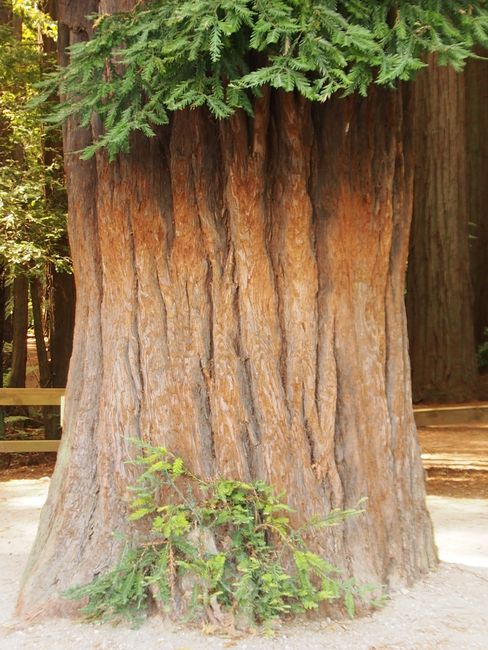
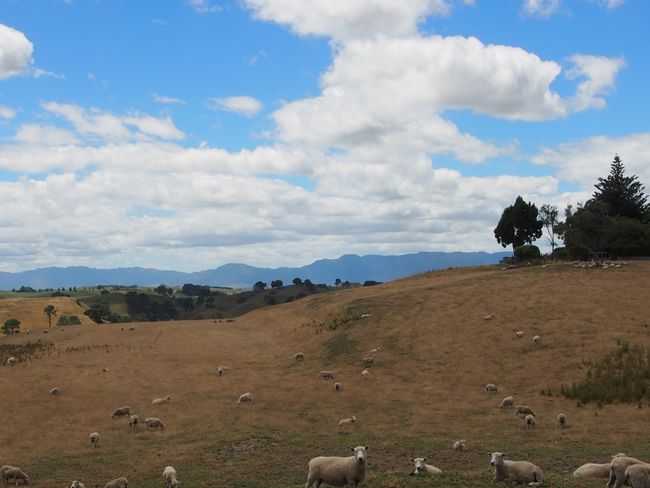
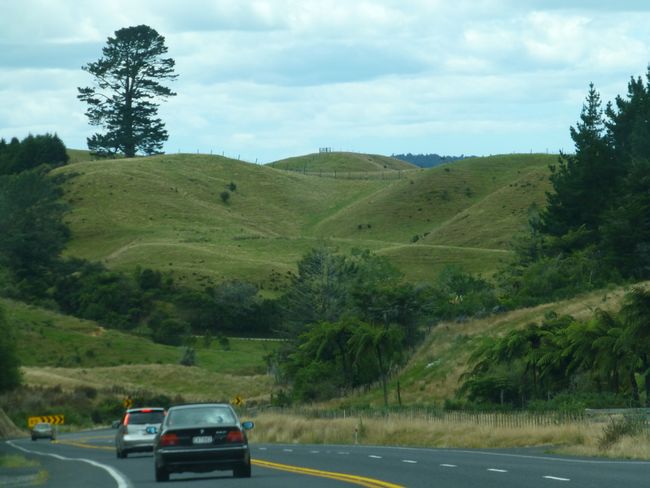
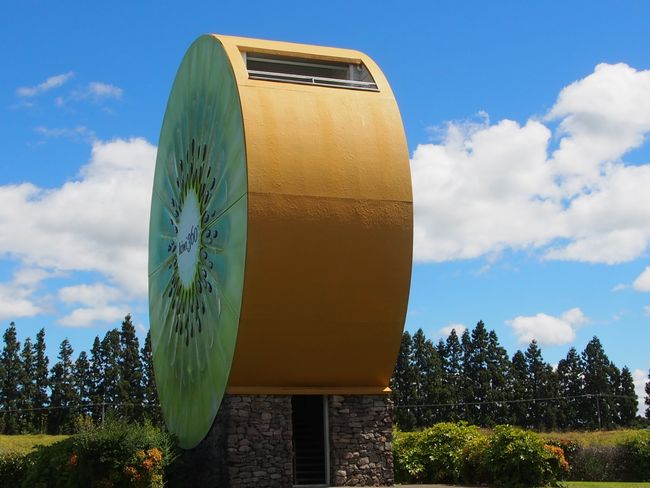
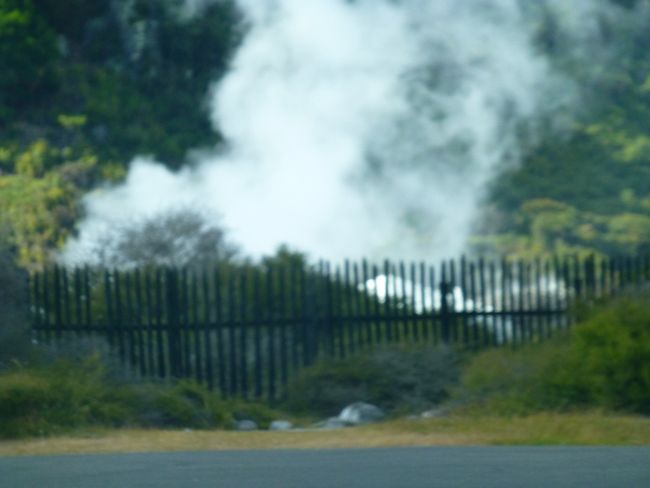
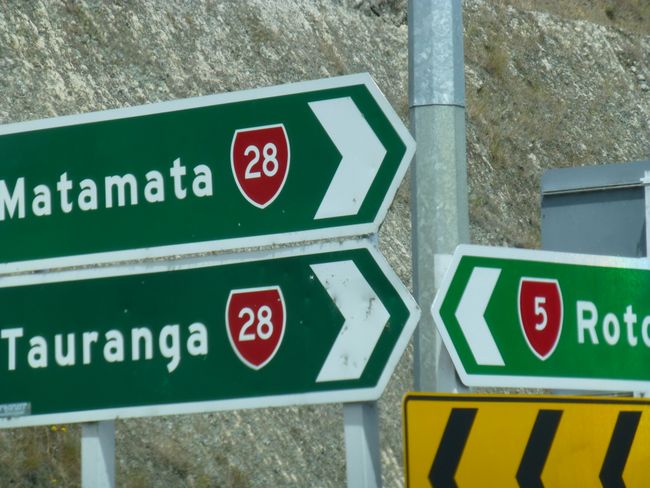
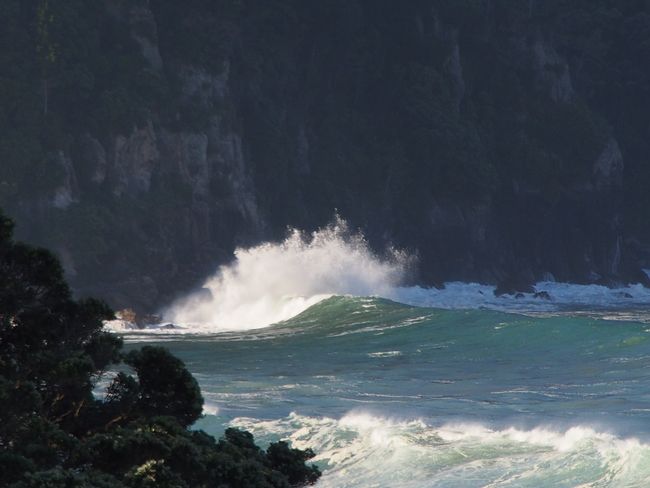
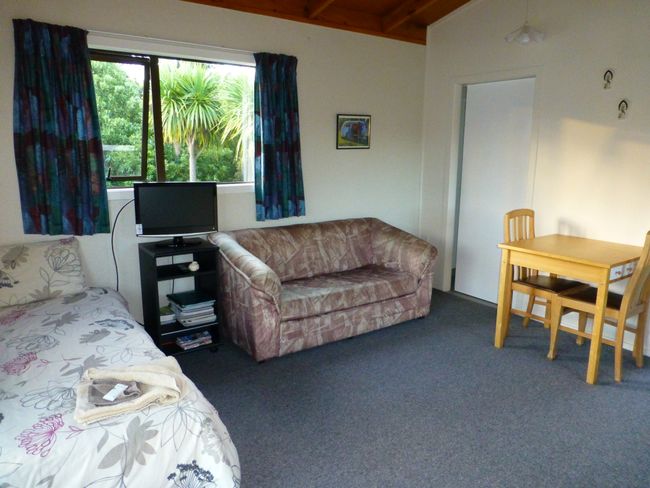
Subscribe to Newsletter
1.2.2014 Hobbits, Kiwis and a House of My Own
I reluctantly leave this nice motel in Rotorua, where Beth and her husband are really great hosts. Quickly exchange the T-shirt at Te Puia, which goes smoothly, and then I'm already on my way to Buried Village. Here, where in 1886 the nearby Mount Tarawera buried a village, you can now see the same. Te Wairoa used to be a model village founded by missionaries in the mid-19th century. A British family has uncovered many buildings here, which you can see – like a museum village. Considering the $32 entry fee, I skip it anyway and treat myself to an authentic English scone with clotted cream and jam, as well as a good coffee for breakfast in the café.

So back to the main road, quickly take a look at the Redwoods in daylight - simply stunning and it's hardly possible to photograph them because of their height. I'm practically lying in the parking lot and can only do it with the small camera, which has the larger wide-angle lens.

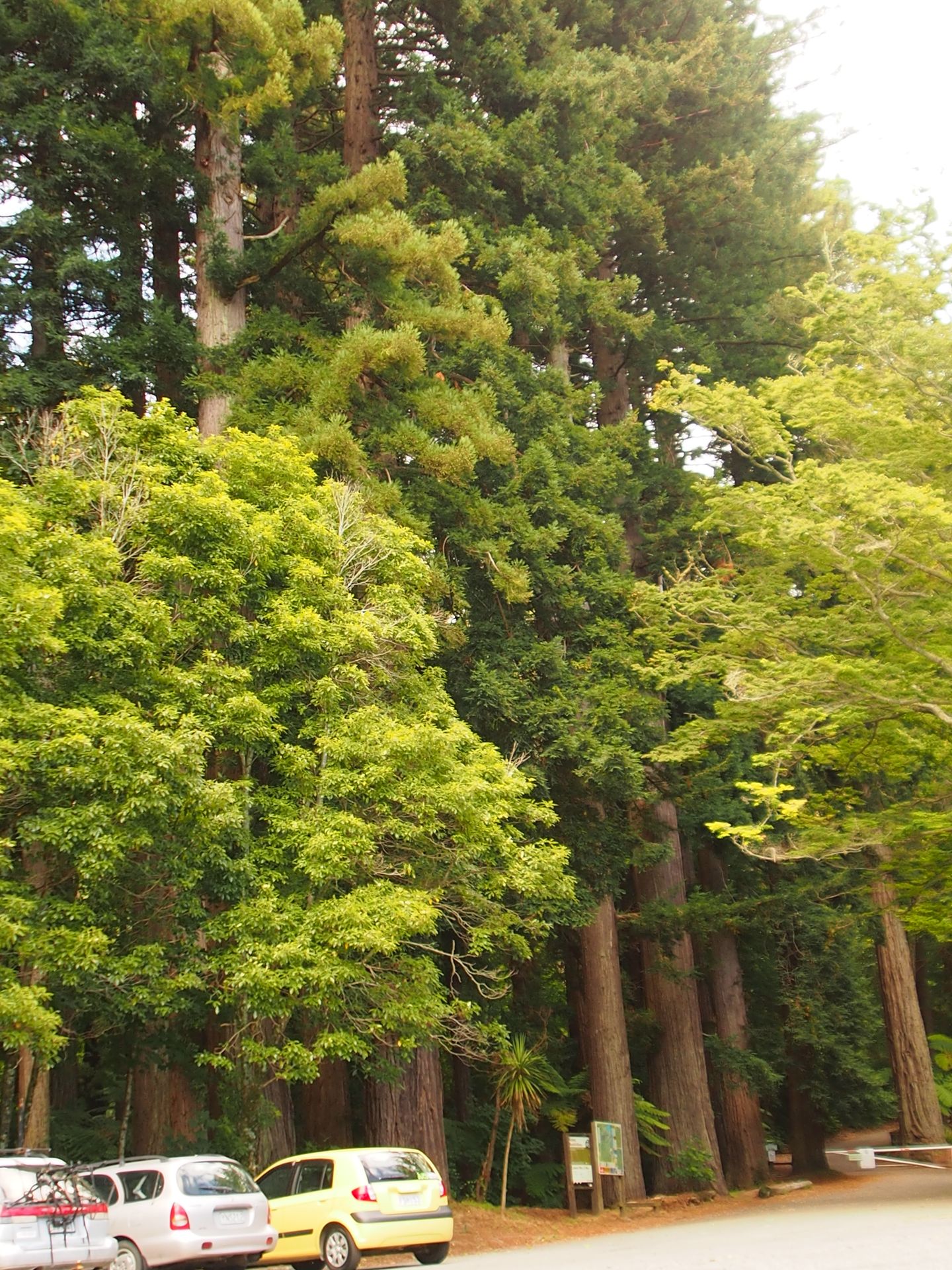
Since I can't find the second zip-off leg of my hiking pants, I drive to an outdoor store to find a comparable pair of pants. Without success. However, a sign at the store entrance irritates me, telling me to put away my weapons. We're not in America, are we? I didn't know that you can carry guns in this peaceful country.
My route is supposed to lead around the eastern side of Lake Rotorua, and I quickly take a detour to Hell's Gate, which is mentioned in my guidebook as another place with hot springs. Unfortunately, the 6km detour leads to a kind of spa, which charges $36 for entry. I don't plan to take a cure here, nor do I need to spend $36 just to take a look, so I continue.
My destination is now Matamata, or rather the nearby "Hobbiton", the film home of The Lord of the Rings trilogy and the three Hobbit films. It is relatively poorly signposted and I wouldn't have found it without a GPS. I don't even trust it when it sends me on deserted country roads where there are no cars and no sign pointing to this tourist attraction.
However, I see the tourist information center (i-site) in Matamata, which strongly resembles a Hobbit house. So I can't be completely wrong.

i-site in Matamata
After curving through the countryside for a while, I finally arrive at my destination, where I wanted to go. It is now already 1:30 PM, and I have driven around quite a bit without really seeing anything. Now I actually want to go inside, but it costs $75 for admission (about €50). I ponder for 10 minutes and decide against it. I look wistfully in the direction of the Hobbit Village, which must be somewhere behind the meadow, but shortly afterwards I am back in the car again.

At Hobbiton, view from the parking lot
On the one hand, the tour takes 2 hours and I still want to try to get to Coromandel and see the Kiwi plantations along the way, on the other hand, the price is just too steep for me. You take the bus there and back to the film set for 10 minutes each, have a guided tour, and then have 20 minutes of free time in the Hobbit pub for a free drink, which of course you paid for with the $75, and then you take the bus back and that's it. I ask two people who have just returned from the last tour, and one says it's not worth it, while the other says it's totally great. So that doesn't help me either.
I sit in my car after buying a souvenir pen for $1 (which is already empty after 3 days, after 6 postcards).
Through gentle hilly landscapes, along many cattle pastures, I continue on through Middle-earth. It is truly a lovely landscape for good-natured Hobbits and completely different from the rough, often windy South Island with its high mountains.
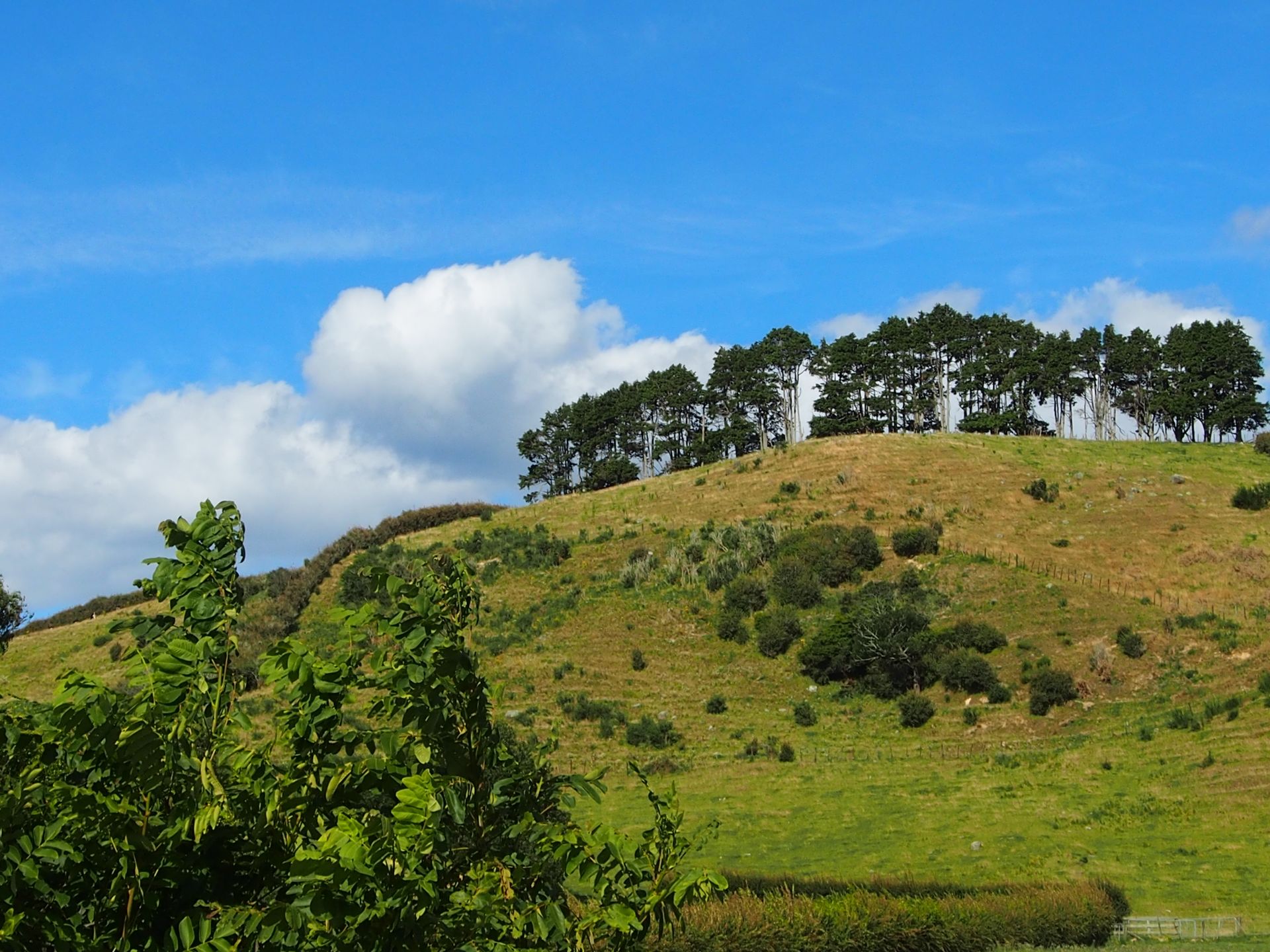
Since “360 Kiwi”, the name of the world's largest kiwi plantation, is located east of Tauranga and I am in Matamata southwest of Tauranga, I still have a good hour to drive until I reach the kiwis. A huge walk-in kiwi made of metal shows the way from a distance (Edit: This attraction has since been closed and can no longer be visited/As of 2019).

360 Kiwi (still open in 2014, closed for a few years now)

On the grounds, there are small trains in the shape of kiwis that you can take tours of the plantation with. Since it is an active plantation, you can't walk there alone and you actually have to participate in a guided tour, which costs $20 and doesn't start until 4:00 PM. It is now 3:20 PM. Too expensive, too long to wait, so I simply take photos of the next kiwi trees and see the fruits on the tree for the first time.

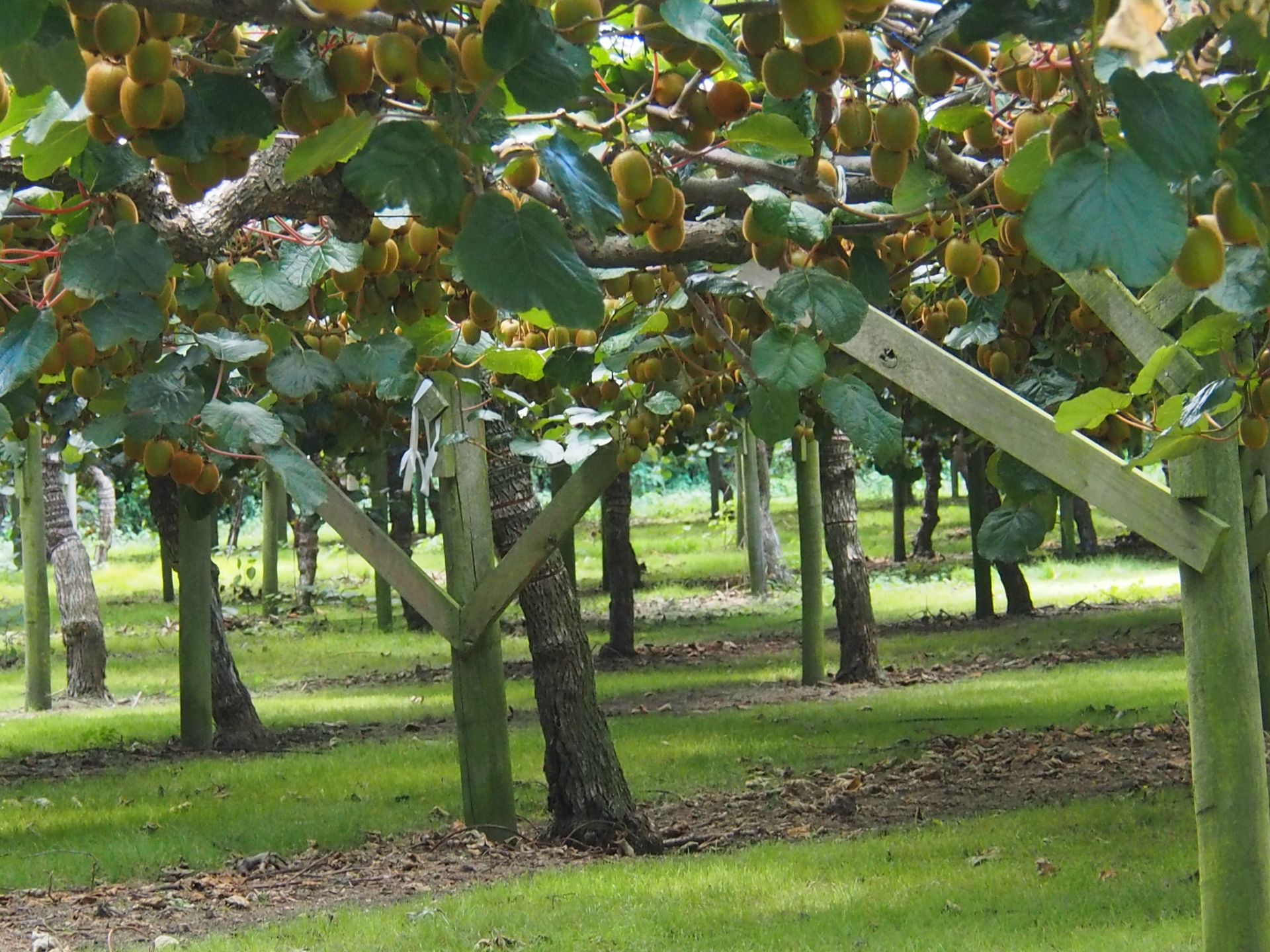
They grow closely together. In the unavoidable shop, there is everything made from kiwi, including wine, hand cream, or piggy banks decorated with kiwis - long live commerce. However, I find my new travel companion here: A plush kiwi bird with a beak, and not on the tree. From now on, it accompanies me on the dashboard.
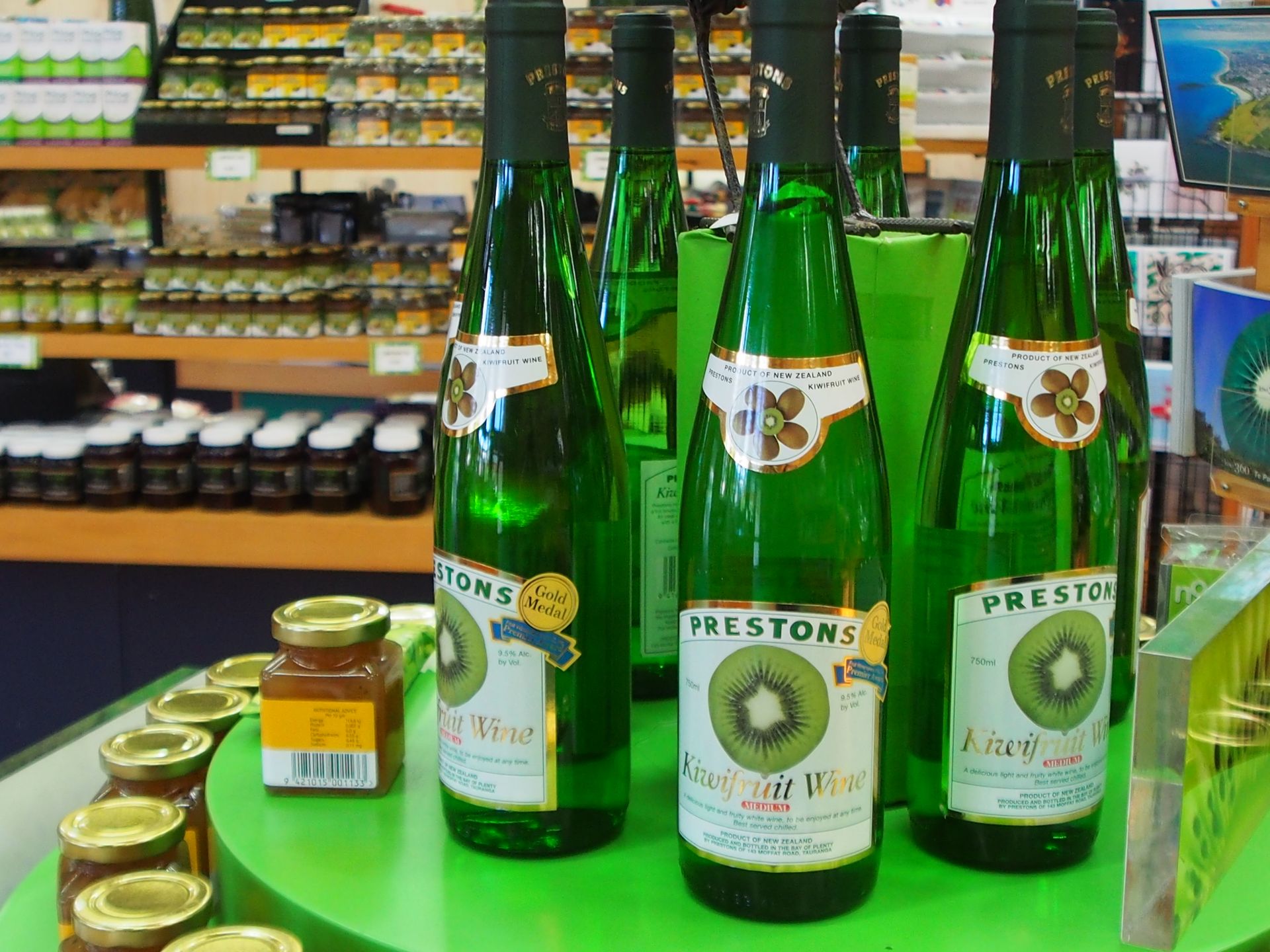

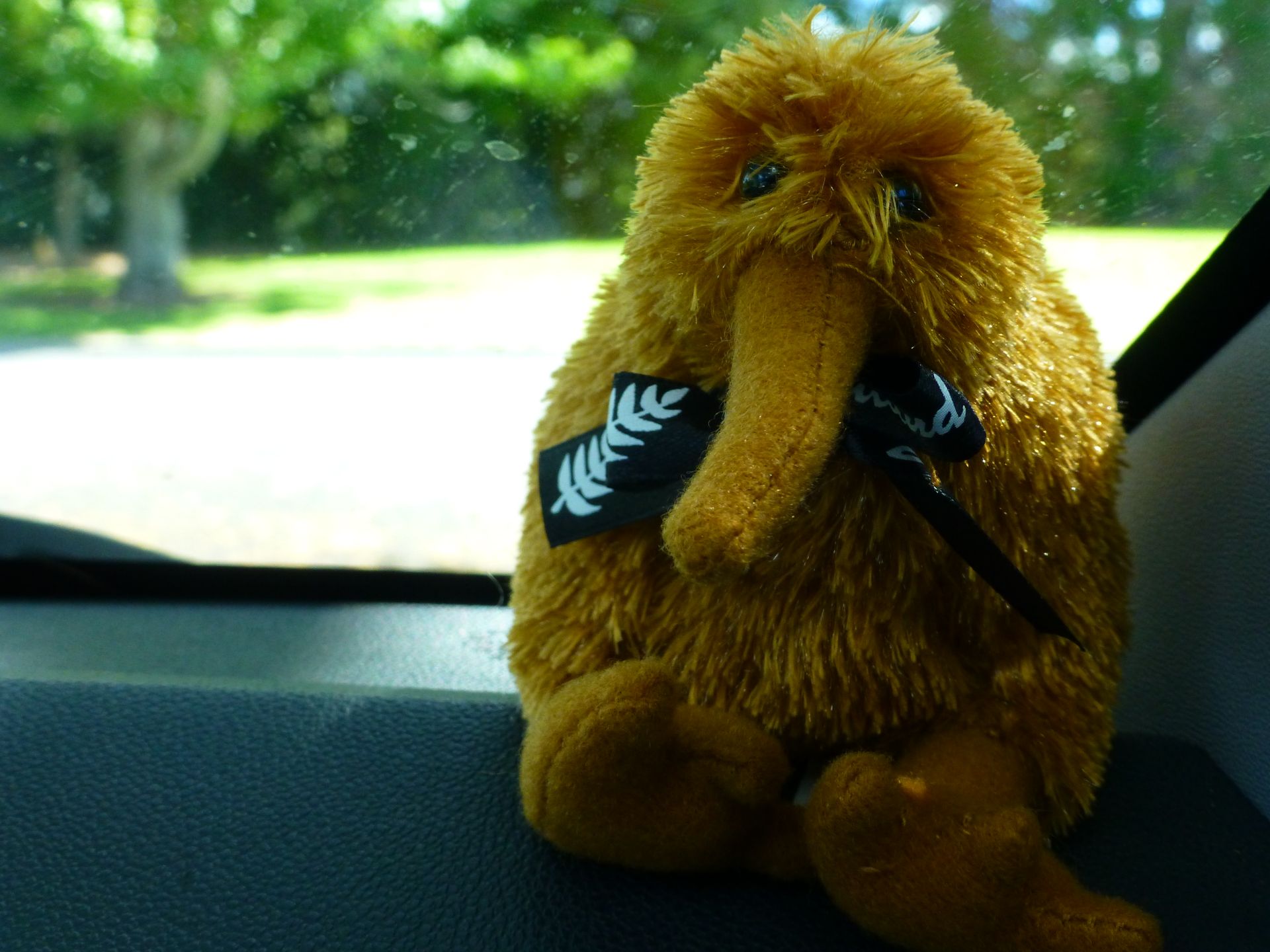
So I'm back on the highway, with the feeling that I saved a lot of entrance fees today, but also drove a lot of kilometers without seeing any of the things I had planned to see. Well, who knows what it's good for. So now I'm already heading towards Coromandel before 4:00 PM.
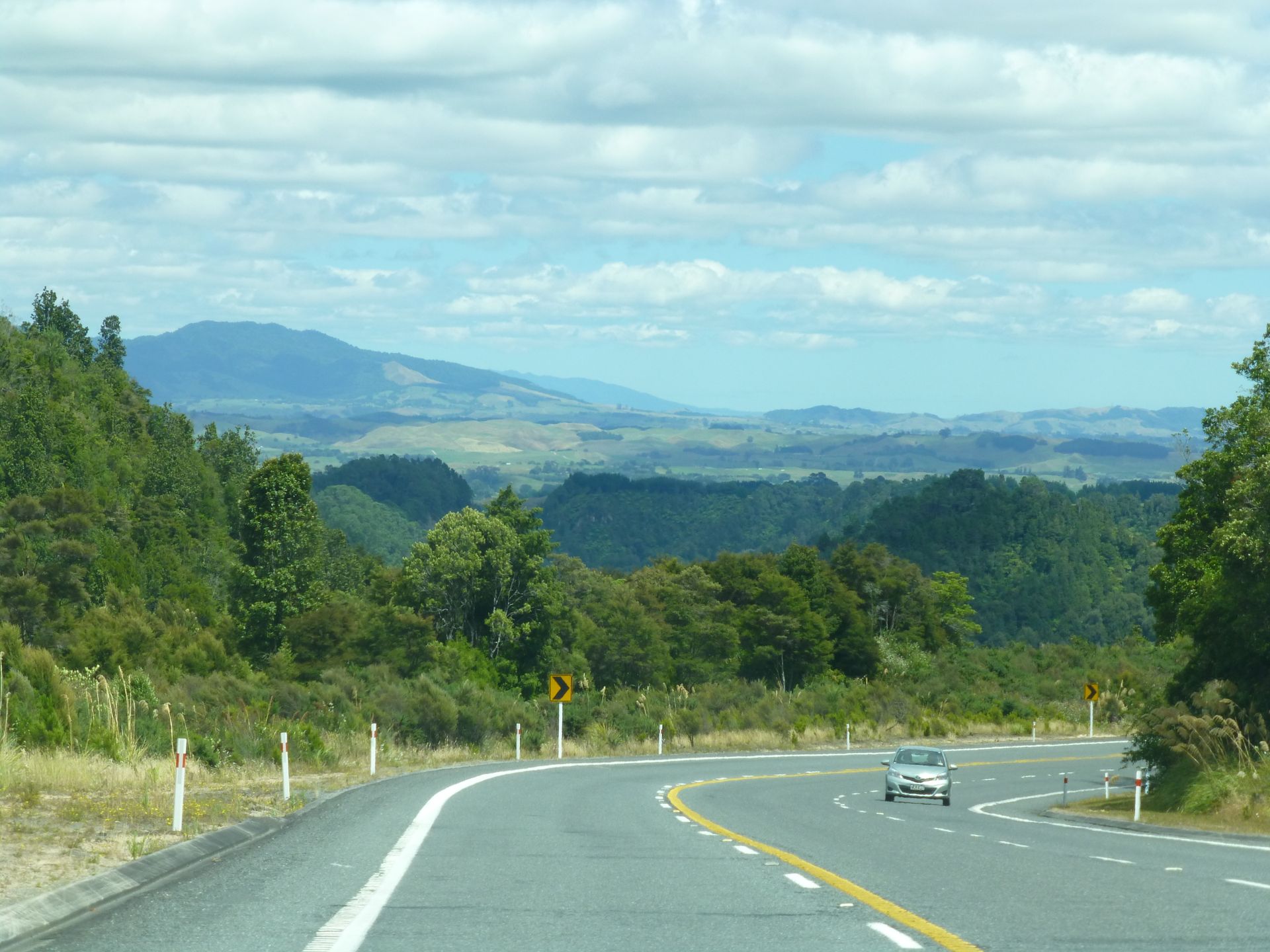
The GPS says 173km and two hours. That's great, I think to myself, the roads must be fantastic. Eventually, the road leads through the mountains again, of course. I didn't think that Coromandel would be so mountainous. I had entered Hahei on the east coast of the North Island as my destination because it is nicely described in my guidebook. With hot underground springs on the beach and "diverse" accommodation options. Since it's the weekend now, this information gives hope that I can still get something in the evening.

Hahei Beach
Eventually, after the 2,500th curve, there is a breathtaking view of the east coast of Coromandel. Although annoyed and also on the wrong side of the road, I cross both lanes to one of the few lookout points (which in 99% of cases are in blind curves, which makes maneuvers like mine always a bit nerve-wracking, wondering if someone is coming from the opposite direction). The light is really beautiful now, and two hours have passed and I'm still 60km away from Hahei. So I keep going, the landscape is beautiful, the sheep all trot in one direction now (maybe to sleep...?) and I keep driving north, curve after curve. The speed limit is sometimes 15km/h, so as not to throw you off track. I briefly drive to the water in Tairua and take a photo of a beautiful surf (the next day I pass by again on my way to Auckland - it's totally low tide and looks really boring). Tairua actually looks quite nice and I consider whether I should stay here, but I am intrigued by the description of hot springs on the beach and the fact that Hahei is so remote.

At 7:30 PM, I reach Hahei Hot Water Beach, which has one or two motels that are full. Otherwise: Great surf and a few backpackers in the only beach bar there.
Now I'm slowly getting a bit nervous. On the one hand, my fuel is running low, on the other hand, it seems like my guidebook author Hans, whose descriptions have guided me well so far, remembers something different. I drive another 8 km to Hahei Beach, where there is also nothing. And what is there is full. At a Holiday Park, they help me and organize the last room for me in another holiday park, the Seabreeze Holiday Park, which even has its own brewery and corresponding food. Another 10km drive, but it doesn't matter anymore. I just want to have a room, otherwise I'll have to drive back to Tairua, which takes about an hour. There was no other place between the two. Finally, at 8:45 PM, I'm finally in possession of a cabin for $120 (x 0.62 = €), which is really nice. My own house just for myself! As is often the case when you check in late at night, it's the handicapped room. I already had that before. It's probably like in the US, where hotels have to have this room but are not allowed to sell it until they think no disabled person will arrive.

Seabreeze Holiday Park

The little cottage is spotlessly clean, no mosquitoes, and that may be due to a strange device behind the curtain that sighs about every 30 minutes and sprays something. At first, I think there is an animal in the room until I discover this thing.
I immediately head towards food and beer, write postcards in the fading sun, and enjoy a delicious burger and a good beer. Up here, the sun sets significantly earlier than in the south. When I was in Te Anau, which was the southernmost point of the tour, it was still light until after 10:00 PM. Here, it is dark by 9:15 PM at the latest.
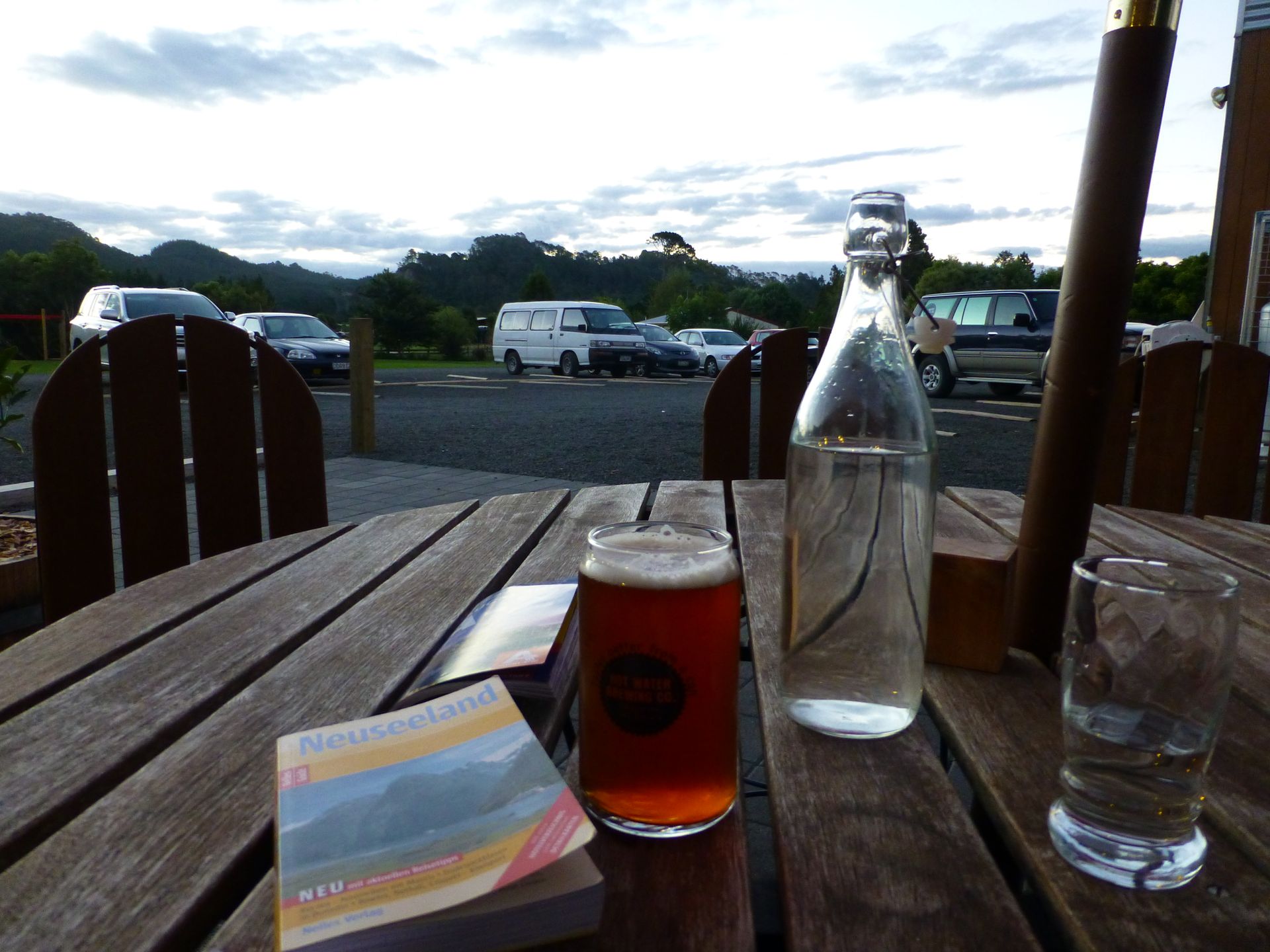
A gigantic starry sky unfolds above me, where there are simply no lights, the view of the Milky Way, stars, and more stars is unobstructed. Unbelievable. I last saw something like this in Burma. Crickets chirp, it is completely silent, and above me, the stars twinkle. Simply wonderful!
Eventually, I fall into bed and fall asleep before I even fall asleep...
Distance traveled: 455 km
Subscribe to Newsletter
Answer

Travel reports New Zealand

